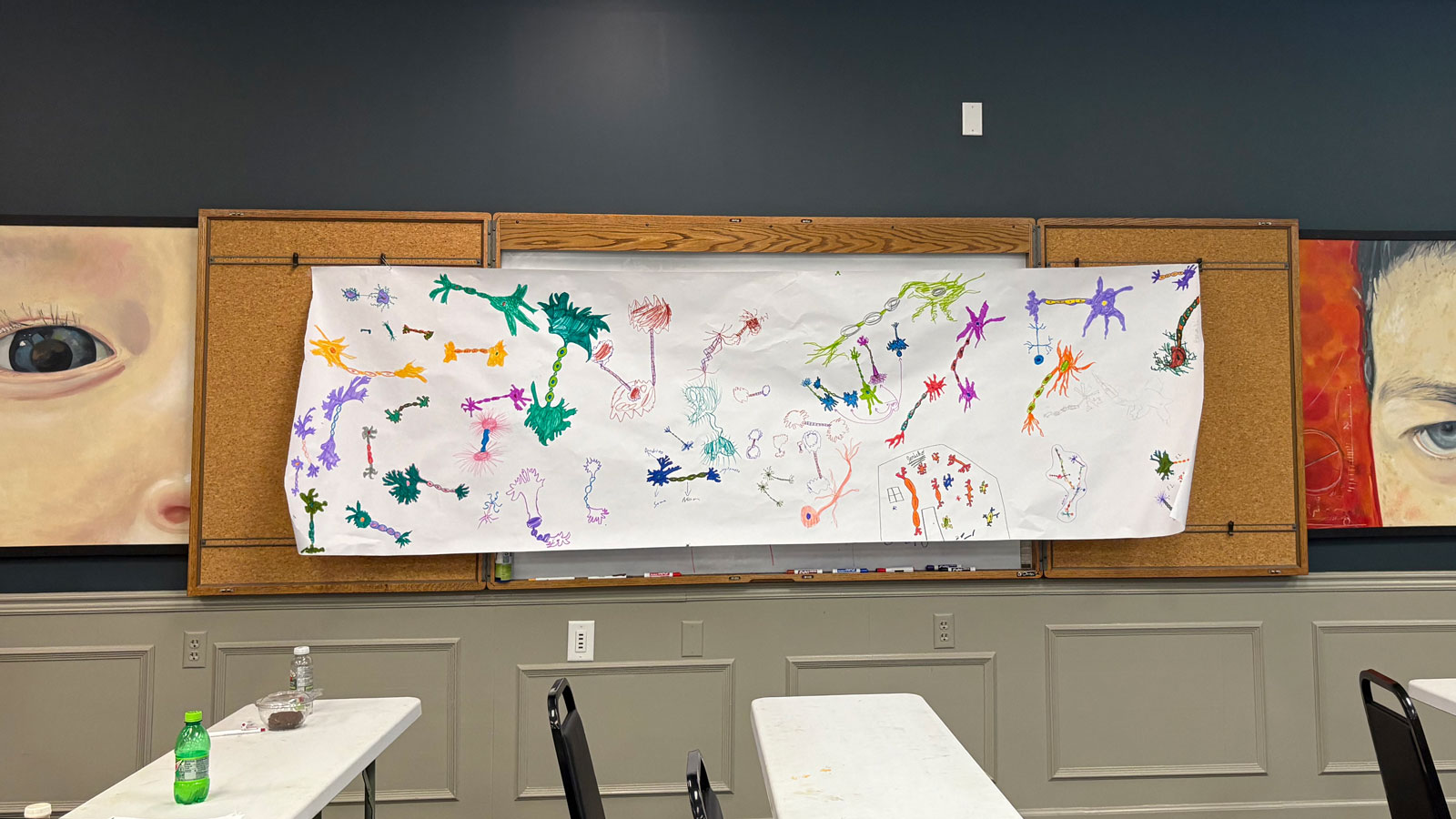The Alabama Life Research Institute, in collaboration with Eye Center South in Dothan, hosted two week-long neuroscience camps, one for middle school students and another for high school students.
Dr. Sharlene Newman, executive director of ALRI and a native of the Wiregrass region, led the initiative to provide a unique learning opportunity she didn’t have growing up.
“I think it is important that young people are exposed to science and scientists early and often,” said Newman. “It helps them to see what is possible.”
The camps were designed to introduce students to neuroscience, as well as elements of engineering and physics. Participants learned about magnetic resonance imaging (MRI) and electroencephalography (EEG), including hands-on experience collecting and analyzing EEG data. They explored neurological disorders such as dementia, stroke, concussion, and psychosis.
Thanks to the partnership with Eye Center South, students also delved into visual perception and sensory adaptation and had the opportunity to shadow Drs. Marius and Sebastian Heersink. Campers also received an inspiring visit from Dr. Marnix Heersink, who shared a powerful message: “Your real job, regardless of the career you choose, is to be kind. To care for people.”



Dr. Chris Crawford, associate professor of computer science at UA, introduced middle school campers to brain-computer interface technology using the NeuroBlock software, allowing students to fly drones with their brain activity.
The camp team included ALRI staff members Dr. Yanyu Xiong and Madeleine Rein; high school intern Jeremy Xu; and two undergraduate students, Abby Wright and Wiregrass native Darriana Thompson.
“This camp was such a great experience for me—not only as a counselor but as a college senior,” said Thompson. “I learned so much more about neuroscience, including brain function and neurodegenerative diseases. But most importantly, I connected more deeply with the Wiregrass area that I grew up in.”
Others noted that the camp’s learning activities brought the science to life, inspiring campers through fun, hands-on experiments.
“Working the Dothan summer camp was a great opportunity to give students a comprehensive understanding of neuroscience,” Rein said. “I loved sharing my passion for psychological sciences and showing students how they can build a future in the field. One of my favorite moments was coaching them on running EEG systems and collecting data.”
“One of my favorite parts of the camp was the Brain Bowl,” said Wright. “It was amazing to see the kids so excited about what they had learned and how much they retained throughout the week. Another highlight was the egg drop activity, where the kids learned about concussions through a fun, hands-on experiment.”
“Rather than simply sitting in the classroom all day, it was amazing that students from all sorts of diverse backgrounds were able to work together to turn advanced concepts into solutions for real-world problems,” said Xu. “One moment that stood out to me was during the egg drop challenge, where students were able to express themselves creatively by designing a ‘skull’ to protect their brain.”
